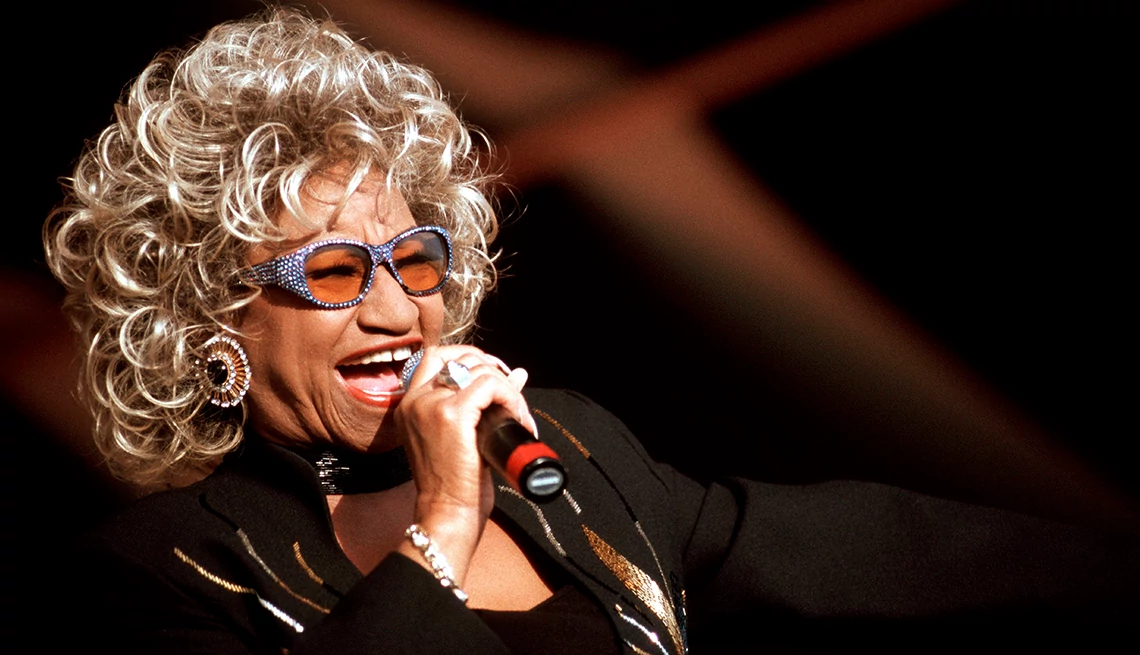AARP Hearing Center


Editor’s note: Celia Cruz, the “Queen of Salsa,” died July 16, 2003, at 77, at her home in Fort Lee, New Jersey, after a long battle with cancer. For 50 years, the legendary singer made generations dance, and she still captivates today’s youth with her unmatched, powerful voice. Originally published in 2002, this interview captures Cruz’s extraordinary humbleness and warmth. It has been updated as part of the coverage of Celia Cruz’s centennial celebration.
Many wonder, what is the secret of the world’s most famous guarachera? How has she managed to continue her active career while projecting youthfulness and vitality well into her 70s? Could it be the azúcar?
After completing her European tour and shortly before traveling to Panama (where she was awarded the National Medal of Honor of the Order of Vasco Núñez de Balboa), the singer, born in a humble neighborhood in Havana, revealed part of her secret.
“Work is what gives me energy,” she said as she slipped a huge gold ring on her ring finger. “I started this year with a lot of work and several awards. That gives me energy and encourages me to keep bringing my music to all my people.”
Leading a healthy lifestyle is another secret to maintaining vitality, she adds.
“When I started my career, I was very young. People used to believe that by drinking brandy or cognac, you could keep your throat in better shape. But I never liked alcohol, so I said, ‘No, I’ll take care of my throat by myself.’ So, without alcohol or drugs, I’ve preserved my health and my voice.”
And of course, she stealthily watches not only her own diet but also that of her “cabecita de algodón” (little cotton head), as she affectionately calls her husband, Pedro Knight.
“We eat very healthy, lots of chicken, vegetables, especially now that Pedro has started having some issues with his sugar levels.... And since this job makes us travel so much, when we’re finally at home, we just watch TV, and we don’t stay up late when we’re not working.”






























































More From AARP
The Eternal Celia Cruz
The story behind the music of the “Queen of Salsa”AARP Honors Hispanic Heritage Month By Amplifying Latino Voices
We’ve rounded up sage life advice from an array of interviews5 Women Honored by U.S. Mint
Celia Cruz is the first Afro-Latina to appear on U.S. currency
Recommended for You